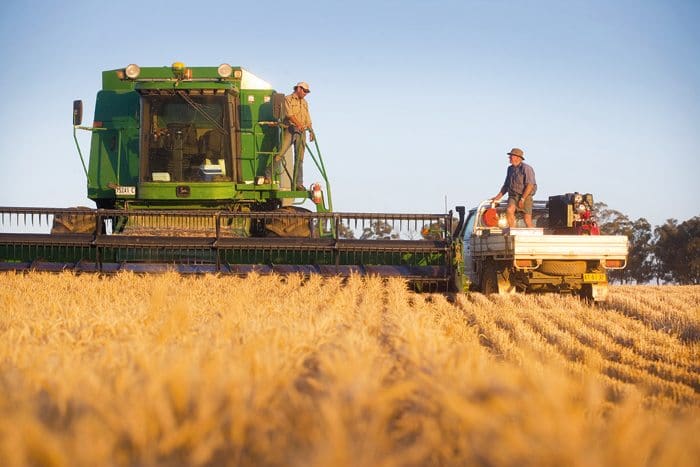Latest listings on Jobs Central
- Non-Executive Director: Livecorp – via Rimfire
- Compliance Officer, Condamine Feedlot – Teys
- National Business Manager, Fertiliser/Nutrition – via Rimfire
- Production Manager – via Rimfire
- Property Manager, Sundown Valley – Hancock Agriculture
- Senior Project Officer, NFF – via Rimfire
- General Manager, Trade & Economics, NFF – via Rimfire
- Feedmill/Feeding Supervisor – Wanderribby Feedlot
- Feedlot Worker/Pen Rider – Wanderribby Feedlot
- Stud Market Operator – AuctionsPlus
- Load Out Supervisor, 3 positions – via MezSeven
Click here to access these and other exciting jobs currently listed on Jobs Central.

AGRICULTURE and indeed the whole food supply chain is undergoing a revolution. The industry is being transformed with the emergence of new technology including advances in sensors, robotics, mechatronics, big data, communication with hand held devices and IoT.
Innovation in food has also taken a new direction, for example developing high protein products resembling meat but made from plant-based products. In addition, there is constant demand for continuous improvement along the food supply chain in terms of quality, efficiency and sustainability.
For those who are appropriately skilled, it is a time of unprecedented opportunities. For those employers who are seeking to attract the skills for the future, it is a time to rethink what the skill sets for the future look like, how to attract them and how to retain them.
The pace of change in the modern world demands that future workers, regardless of their core skill set, are technologically literate and adaptable to change. The increasing convergence of a wide range of technologies will result more than ever before for workers to rely on the skills of others as well as their own to develop, market and support new products. As a result there will be a high emphasis on so called “soft skills” which include team work, problem solving, creativity and interpersonal skills.
Attracting and Retaining Skills for The Future.
The majority of the workforce is now comprised of Generation X (born 1965 to 1979) and Generation Y, also known as Millennials (born 1980 to 1996). To attract and retain them, you need to understand and deliver what they seek in a workplace.
Characteristics of Generation X and Y
Ambitious, tech savvy, multi-tasking, love change. Immersed in the digital world. Seek work/life balance. Crave meaningful work and like to be challenged. Members of these generations are, as a rule, not averse to moving jobs every 2 or 3 years if the work environment doesn’t fit their requirements.
Retention of Gen X and Y centres around maintaining a work environment which satisfies the above requirements. This demands insight of them as individuals. Just as businesses must understand their customers’ needs, employers must understand their workers’ individual aspirations and do their best to cater for them. Doing so may come in the form of new challenges, learning new skills or other means of personal development.
Tips for Hiring When Skills are in High Demand
- Don’t rely on advertising to identify the best performers. Superior performers are commonly happily employed and not actively seeking new opportunities but will consider them if approached (so called passive candidates represent up to 60% of all who possess the appropriate skills to fill a vacancy).
- If you have the appropriate industry networks, you should identify and approach passive candidates. If you don’t have the required networks, it is advisable to outsource the search to a company who has an understanding of your industry sector and/or an understanding of the vacancy to be filled.
- Remember when skilled people are in strong demand, you are in competition with other prospective employers. Ensure that you present a professional front by responding to applicants in a timely manner and maintaining communication with them throughout the recruitment process as well as notifying them of the outcome in the event that they are unsuccessful. If you are time poor, it is another good reason to outsource the recruiting process. A drawn out recruitment process with associated delays and poor communication is taken as indicative of the future employment experience and is a turn off for candidates.
Source: Agricultural Appointments. For further information on Future Skill Hot Spots in Agriculture and Other Major Future Challenges in the Industry, download a free copy of Agricultural Appointments’ “Agribusiness Trends and Salary Report 2020”.

HAVE YOUR SAY